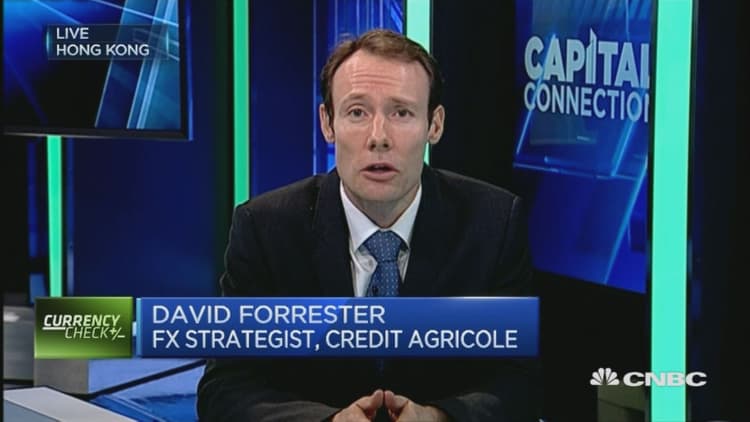
Federal Reserve officials this week likely will point to growing signs that the economy is improving enough that at least one rate hike will be warranted by year's end.
But it might not matter what they say. Investors increasingly are tuning out the central bank.
2016 has been a rough year for monetary policymaking, with the Fed's credibility strained enough that the market has become more prone to take a "we'll believe it when we see it" attitude when it comes to moves in interest rates.
"Their credibility is very, very low," said Dan North, chief economist at trade credit insurance firm Euler Hermes North America. "The financial markets are not giving a lot of credence to what the Fed is saying, and rightly so."
Despite chatter from central bank leaders and speculation from the financial press about looming hikes, the market is becoming pretty immune to Fed saber-rattling.
Indeed, just seven months ago, the Fed was prepping investors for four rate hikes this year. Now the market is pricing in only a 2.4 percent chance of a move this week and a fairly low likelihood farther down the road.
Multiple Wall Street pros have been talking up September in recent days, but the market gives just a 19.9 percent probability of a hike then. December is about a coin flip, with traders anticipating a funds rate of 0.47 percent from the current 0.4 percent. The CME says that equates to a 47.8 percent chance.
The principal question, then, will be what kind of signals the Federal Open Market Committee sends in the post-meeting statement.
At the June meeting, the committee surprised the market when it conceded that its original estimation of four hikes this year was wrong, cutting the new projection to two. The statement did not include a "balance of risks" mention that the market considers pivotal in gauging the sentiment of Fed officials, nor did it give a rate timetable, like the "next meeting" language it included last October, the meeting before it hiked.
A deluge of economic data follows the FOMC meeting, including an estimate of second-quarter gross domestic product, revisions to 2015 GDP and the employment cost index report. In addition, the Kansas City Fed holds its annual Jackson Hole, Wyoming, summit in August. It should be noted that much of the data on which the Fed will rely for this week's meeting covered the period before the June Brexit vote.
"Policymakers will have an incentive to keep their options open, and plenty of opportunities to guide market expectations, should they need to," Goldman Sachs economists Zach Pandl and Jan Hatzius said in a note to clients. Goldman sees a 25 percent chance of a September hike and 40 percent in December, which adds up to a two-thirds probability of one move before the end of the year.
As for the financial markets, stocks have been on a monthlong run and have staged an 18 percent rally off the February lows. Bond yields remain muted, with the benchmark 10-year Treasury note well off its July 8 low but still sharply down for the year, most recently trading at 1.56 percent.
The Fed, though, still finds reasons to keep rates anchored in crisis territory as it has added global financial stability as an unofficial third mandate on top of its two official duties of price stability and maximum employment. Inflation is low but rising gradually, while many economists believe the labor market is nearing capacity, despite a slowdown.
The central bank is now left to chart a difficult course, with markets doubting that policy will normalize anytime soon. The next month with a better than 50 percent probability is March 2017, with a hike not fully priced in until December 2017.
Fed officials, however, continue to insist that rate hikes will be appropriate sometime soon.
"There are only so many times you can do that and say the facts have changed and we're changing our mind," said North, the Euler Hermes economist. "It may be rational a time or two. If you keep doing that, your credibility does indeed get hit. That becomes a problem for them."


